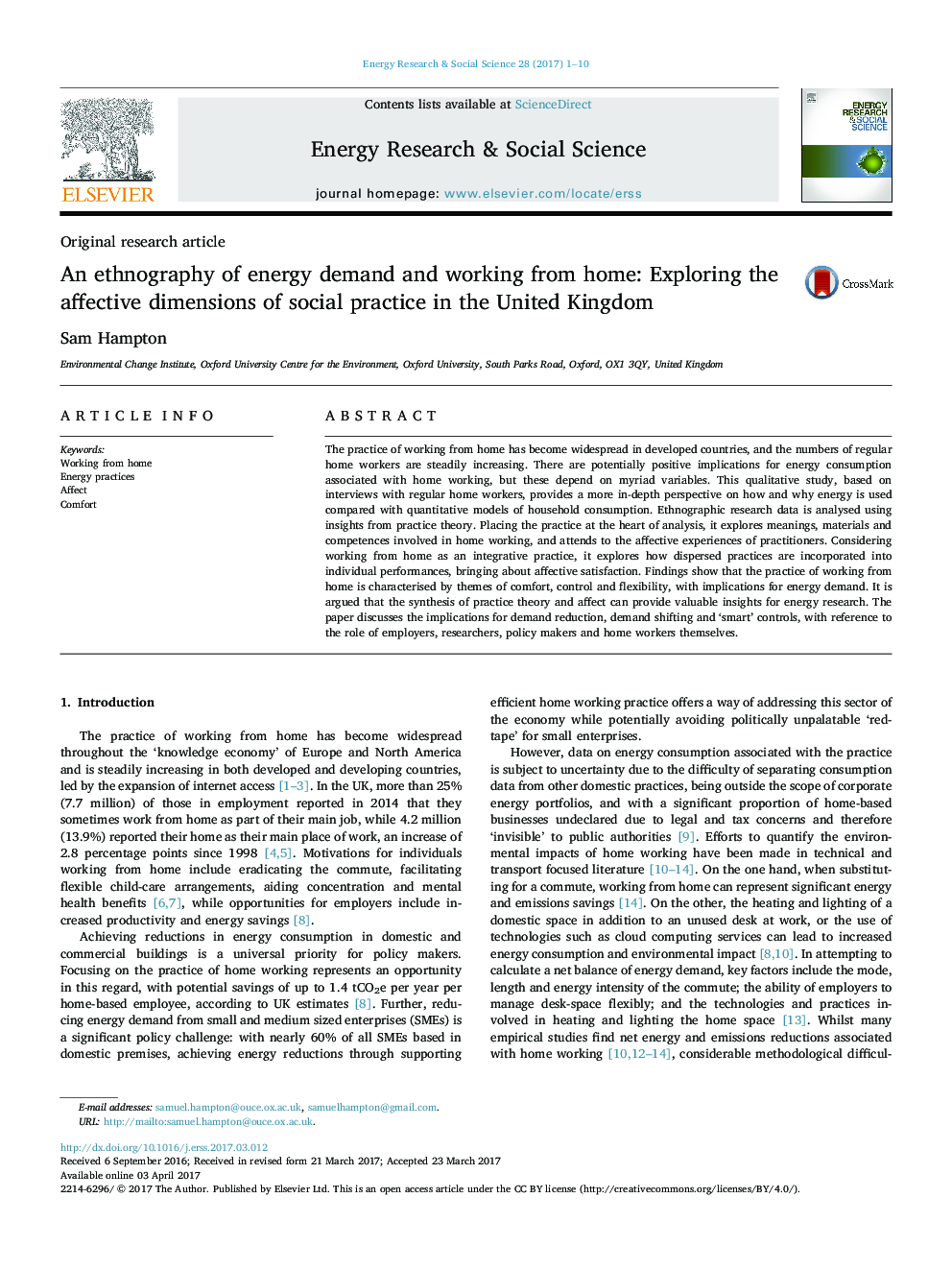| Article ID | Journal | Published Year | Pages | File Type |
|---|---|---|---|---|
| 6463962 | Energy Research & Social Science | 2017 | 10 Pages |
The practice of working from home has become widespread in developed countries, and the numbers of regular home workers are steadily increasing. There are potentially positive implications for energy consumption associated with home working, but these depend on myriad variables. This qualitative study, based on interviews with regular home workers, provides a more in-depth perspective on how and why energy is used compared with quantitative models of household consumption. Ethnographic research data is analysed using insights from practice theory. Placing the practice at the heart of analysis, it explores meanings, materials and competences involved in home working, and attends to the affective experiences of practitioners. Considering working from home as an integrative practice, it explores how dispersed practices are incorporated into individual performances, bringing about affective satisfaction. Findings show that the practice of working from home is characterised by themes of comfort, control and flexibility, with implications for energy demand. It is argued that the synthesis of practice theory and affect can provide valuable insights for energy research. The paper discusses the implications for demand reduction, demand shifting and 'smart' controls, with reference to the role of employers, researchers, policy makers and home workers themselves.
